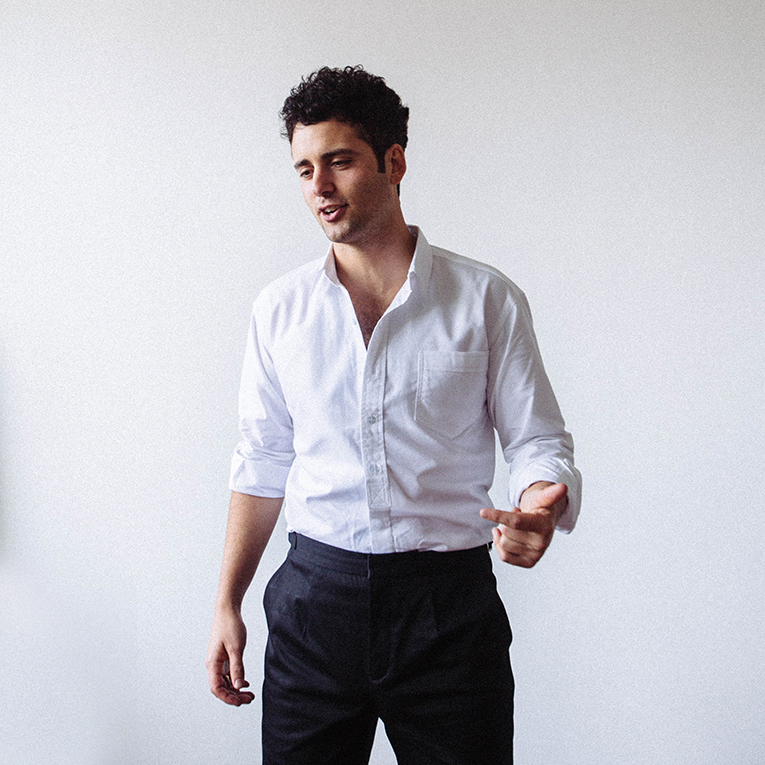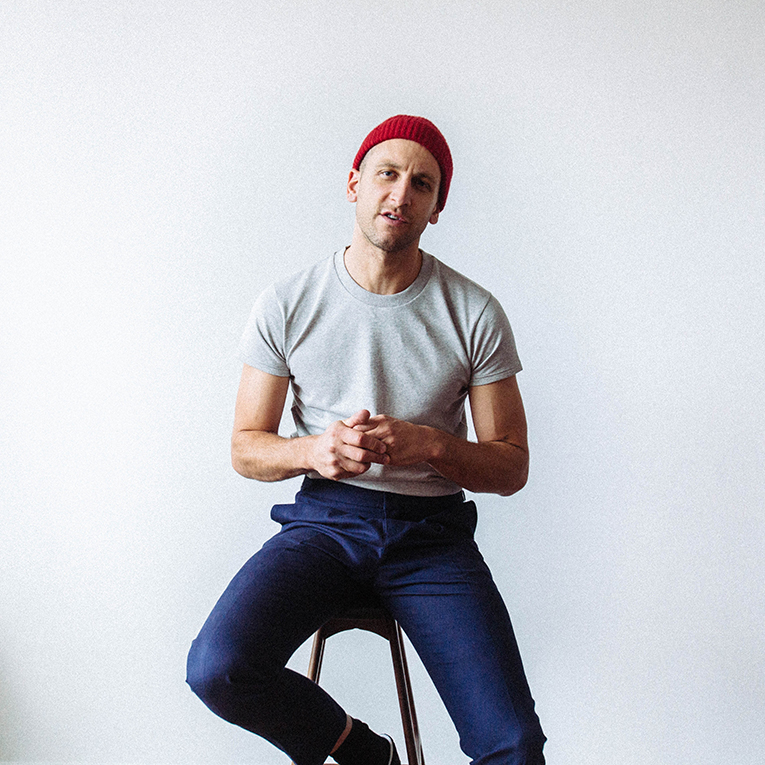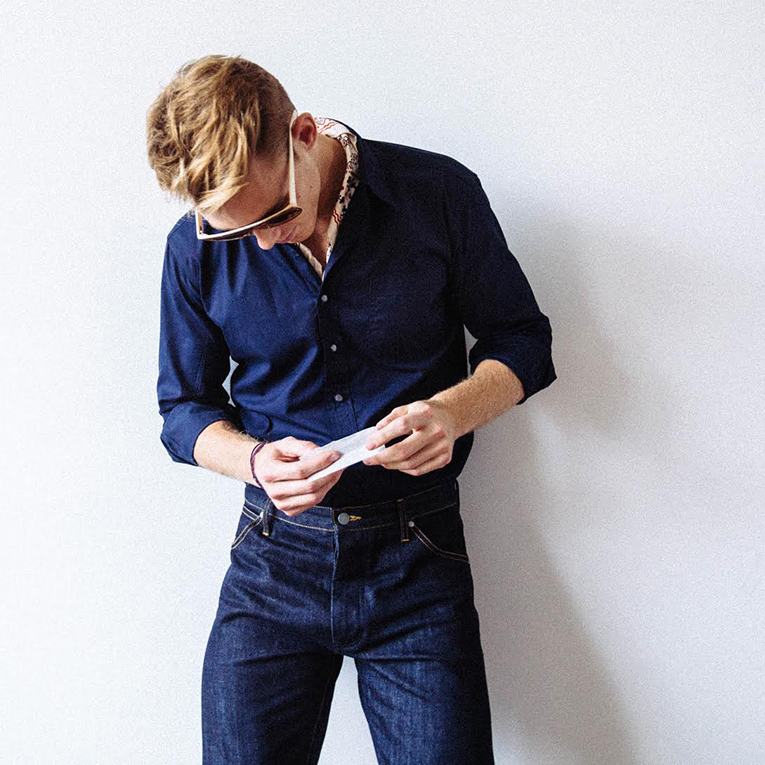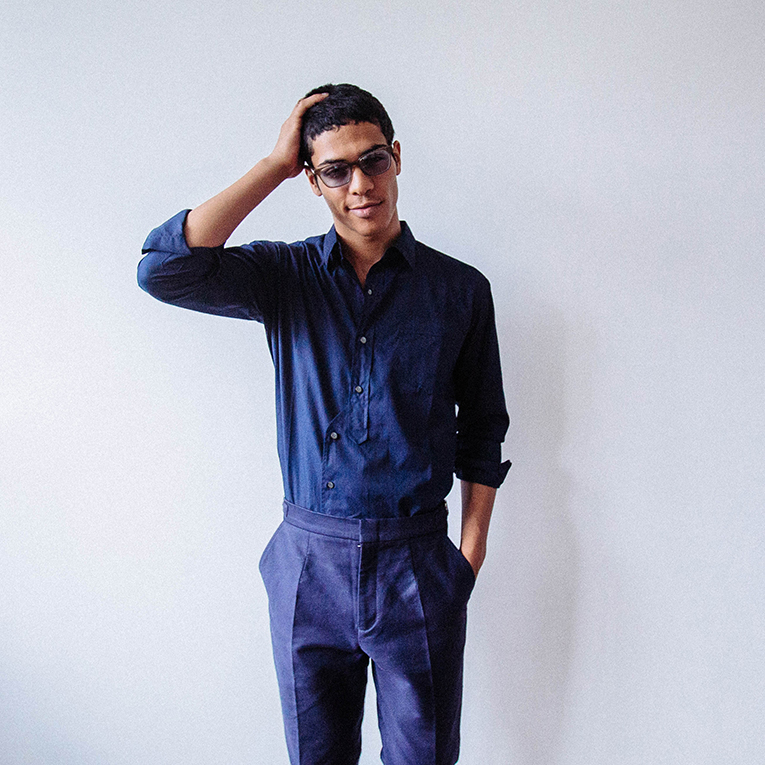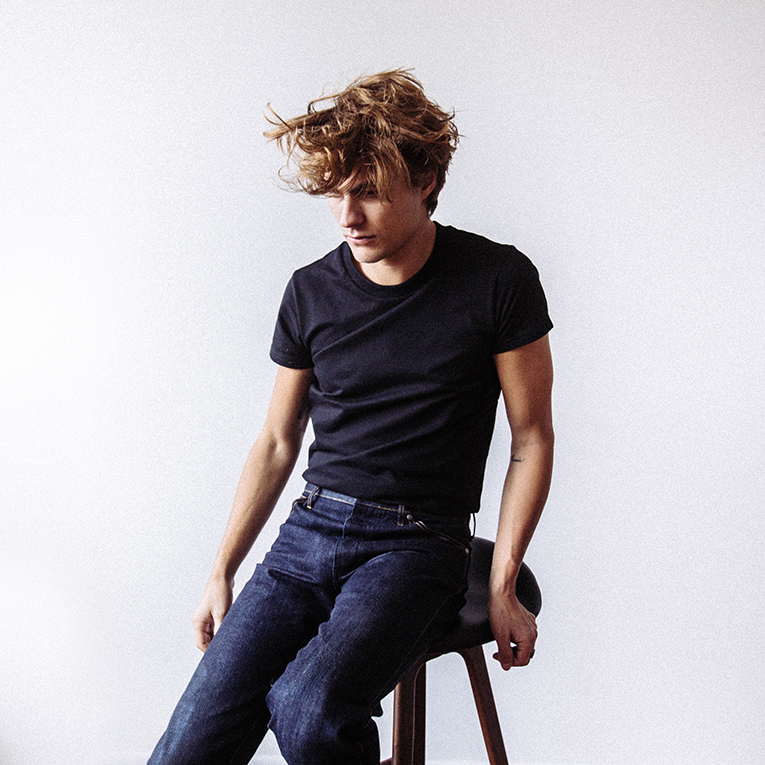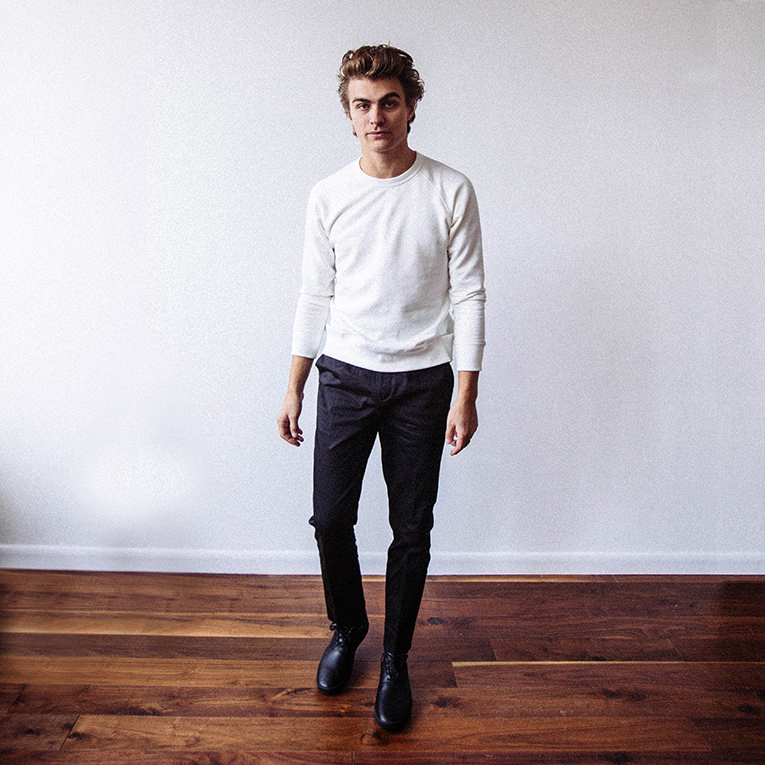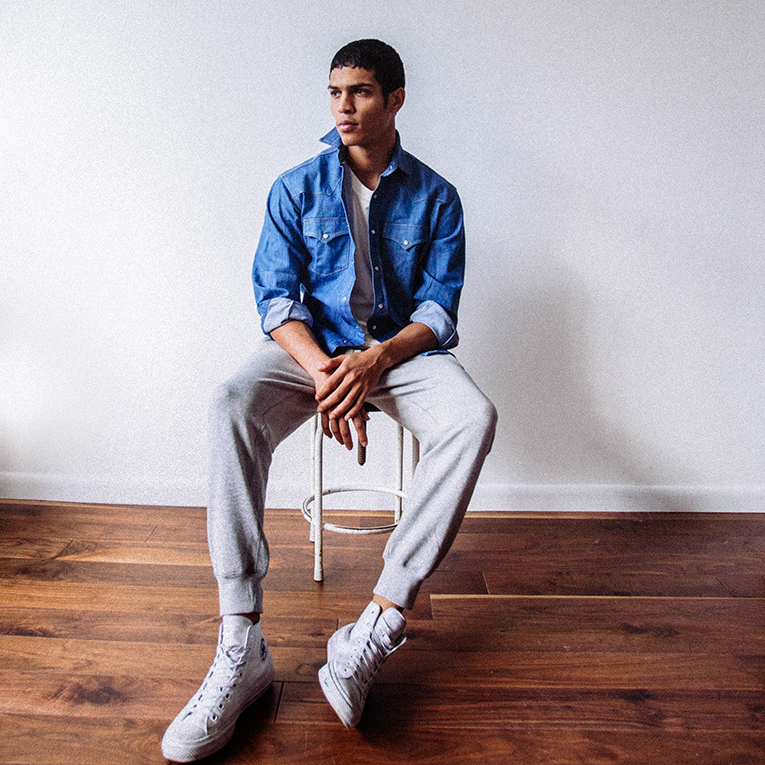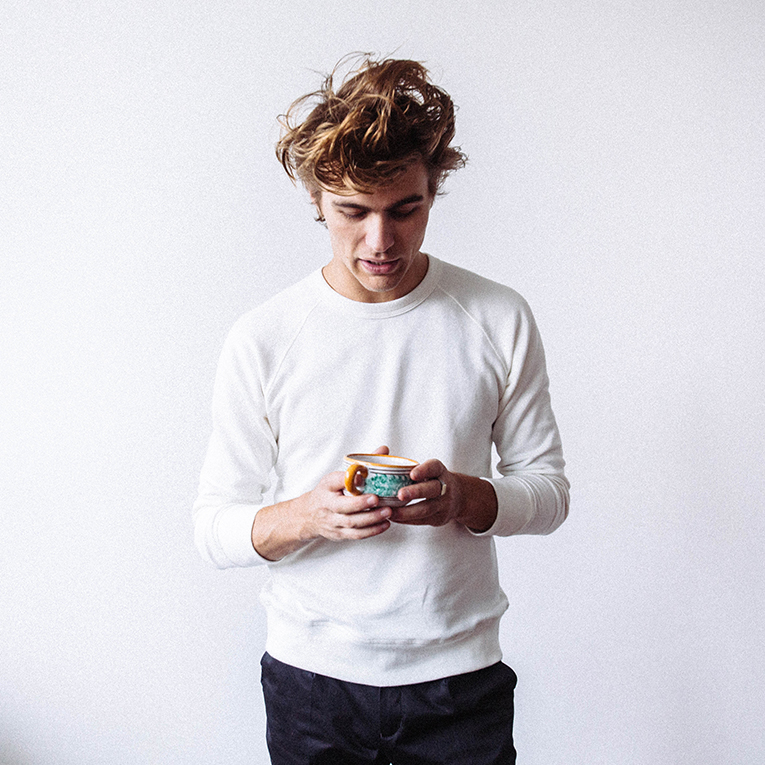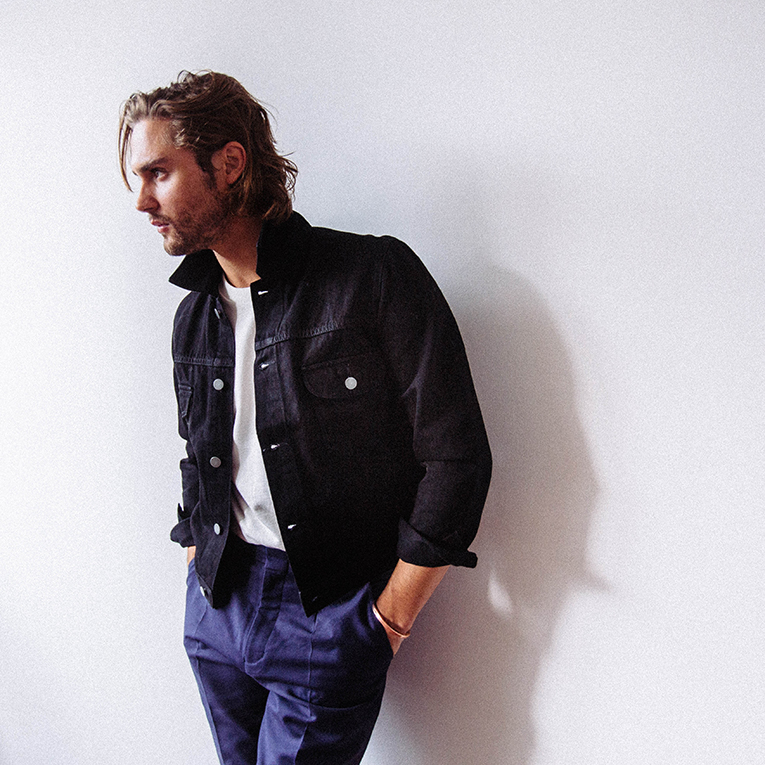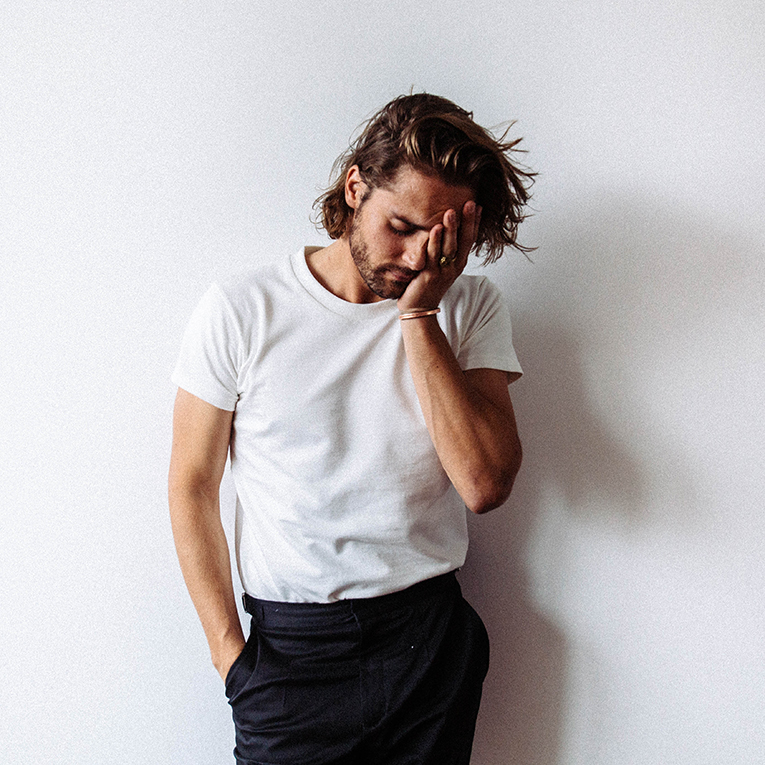Freddie Cowan, Brianna Lance y David Chamber. El guitarrista de The Vaccines, una diseñadora convertida en mĂşsico, y un sastre: el trĂo detrás de la marca Basic Rights. Freddie nos habla del proyecto
Freddie Cowan se une a la tendencia de mĂşsicos que crean su propia marca de moda. “Desde que era un adolescente quise tener una lĂnea de ropa. En una banda siempre estás buscando tu identidad, ya sea a travĂ©s de la mĂşsica, la polĂtica o la ropa. AsĂ que para mĂ es lĂłgico que un mĂşsico dĂ© un paso en esa direcciĂłn. Es lo que haces cuando no quieres estar dándole vueltas a quĂ© ponerte. Y mientras estaba en Nueva York grabando el tercer álbum de The Vaccines sentĂ que era el momento. AsĂ que hice unas cuantas llamadas y Basic Rights nació”. ÂżY a quiĂ©n llamĂł el guitarrista de The Vaccines? Primero a Brianna Lance: Estilista, ex-diseñadora de Reformation, dj, mĂşsico, it girl… Freddie y Brianna habĂan trabajado conjuntamente en el vestuario del tour para The Vaccines. “Básicamente todo naciĂł ante la imposibilidad de encontrar la ropa que yo querĂa, ni la marca en la que conceptualmente pudiera creer. QuerĂa hacer algo que pudiera apoyar como cliente. Y como no encontraba ningĂşn sitio donde un tĂo que quisiera vestir bien pudiera hacerse un armario, ni muy de marca, ni excesivamente plano, decidimos hacerlo nosotros”. La segunda persona a la que llamĂł Freddie fue David Chamber, un sastre de toda la vida que ha vestido a Bowie, David Hockney, Harvey Keitel o Manolo Blahnik. La idea es hacer ropa basada en la simplicidad y que quede perfecta. “Todo el mundo tiene un tamaño distinto, asĂ que tallar correctamente requiere un verdadero experto. Y David, de joven, trabajĂł durante 7 años en la trastienda de Saville Row aprendiendo a perfeccionar los pantalones. No todo el mundo está dispuesto a pasar por ese tipo de entrenamiento. Él es Ăşnico en su profesiĂłn”. La idea de Freddie Cowan con Basic Rights es hacer ropa básica de alta calidad, “producimos en Tailandia, tenemos un pequeño taller familiar que produce solo para nosotros“ y de paso “romper algunos de los malos hábitos que se han formado en la sastrerĂa moderna con el fin de resucitar la tradiciĂłn más que aportarle nada”. Simple, como una bonita canciĂłn de pop.
———————————————-
www.basicrights.com
FotĂłgrafo: Stuart Winecoff
———————————————-
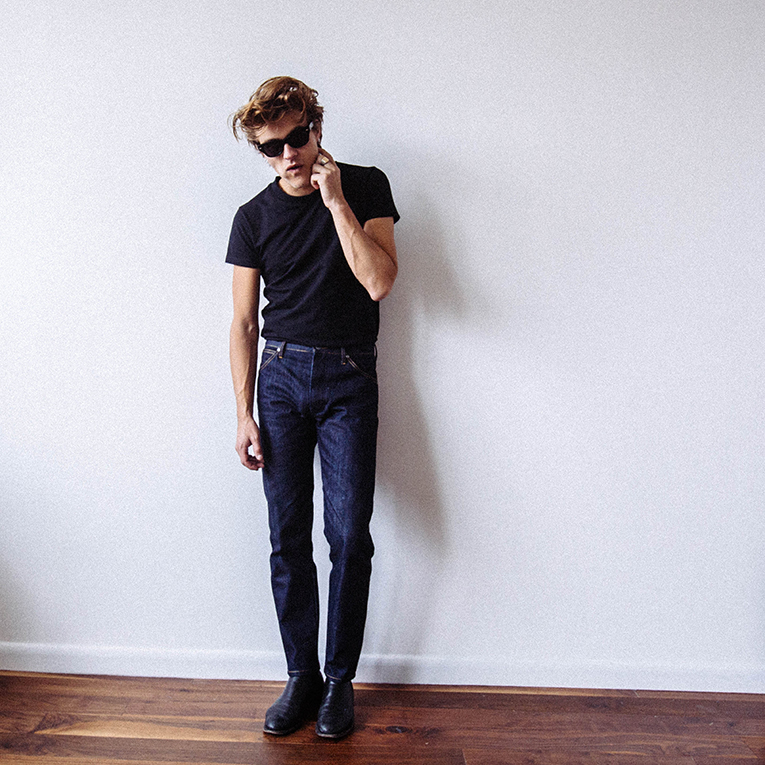 How did Basic Rights emerge? I wanted to start a clothing line when I was a teenager. I was in New York making The Vaccines third album and the time felt right, so I made some calls and Basic Rights was born.
How did Basic Rights emerge? I wanted to start a clothing line when I was a teenager. I was in New York making The Vaccines third album and the time felt right, so I made some calls and Basic Rights was born.
Why the name of Basic Rights? I liked the play on words. We do Basic clothes Right. Essentially the whole thing was born out of not being able to find the clothes I wanted or a company that conceptually I liked or believed in. I wanted to do something that I as a customer would support.
What are the aesthetic keys of Basic Rights? Simplicity.
Where do you produce the collections? We produce in Thailand, we have a very small family run factory that now produces only for us, we are very close with them.
What kind of fabrics do you use? We use mostly Japanese fabrics, they always stand up above the rest. If it’s wool or winter materials, I get them from mills in Scotland.
You are a musician who has his own fashion label. What is your role within the brand? Do you work in the design or are you a muse? I am the Director of the company but in a small business the roles are very blurred. We all get involved in every aspect of the day to day, it’s all hands on deck.
There are many musicians who have created their own fashion label. Why do you think this happens? Many fashion brands are associated with musicians such as sales strategy, it is that what makes a musician come to consider creating their own brand of clothing? In a band you are always checking your identity whether its through your music, belief systems, politics or what you wear so to me its logical for a musician to take a step in that direction. Its the place you go to when you don’t want to second guess yourself when you get dressed, its aim is to be deeply unpretentious.
In your team you have a lifelong tailor, David Chambers. What does Basic Rights contribute to traditional tailoring? We incorporate his tailoring so that our clothes fit perfectly. Everybody in the world is a different size so grading correctly requires a true expert. As a young man David worked for seven years in the back of a Saville Row shop just learning to perfect trousers. Not many people aren’t willing to go through that kind of training anymore, he is one of a kind. I want to break some of the bad habits that have formed in modern tailoring, to resurrect and respect tradition rather than contribute to it.
What needs more effort, to make a record or a collection? Making a record is a much more complex and layered undertaking, doing a collection is just fun.
Basic Rights´ collections have titles like the albums? We don’t title the collections but we nickname the items after our friends who inspired them.
Is there any connection between The Vaccines aesthetics or his followers and Basic Rights? we both strive for directness through simplicity.
How would you like to be the evolution of Basic Rights? To maintain its ethic, become very involved in charity and be a responsible company. If we lost site of that I wouldn’t want it to exist.


